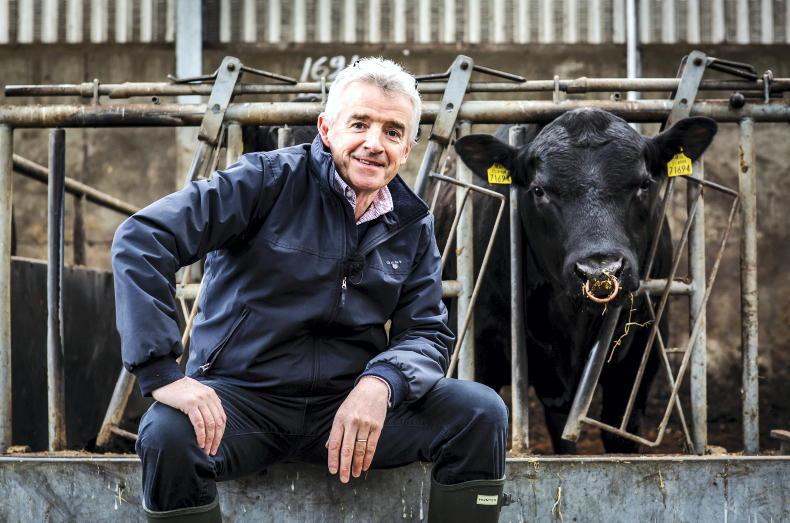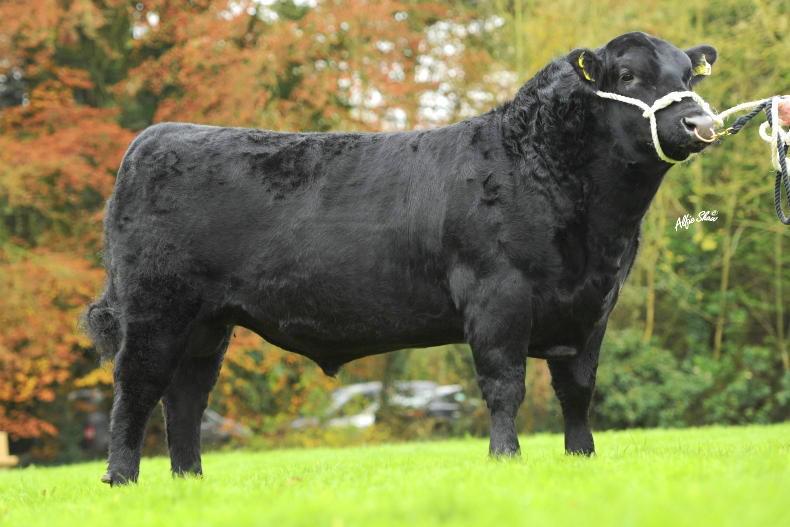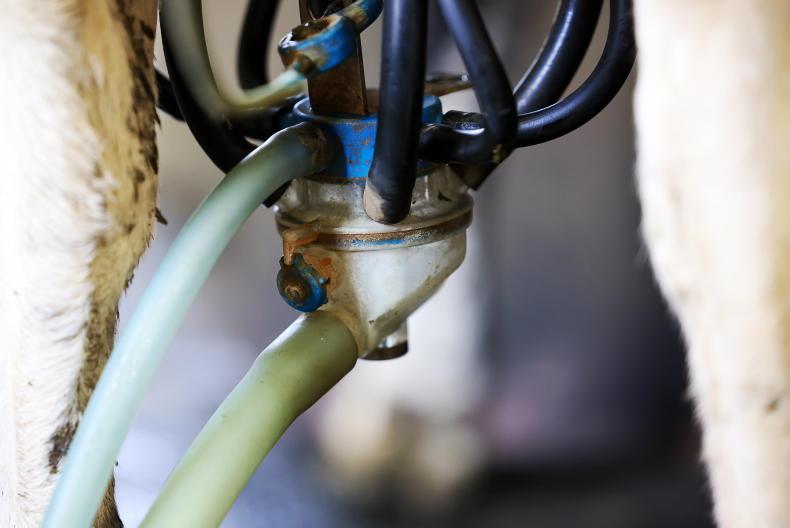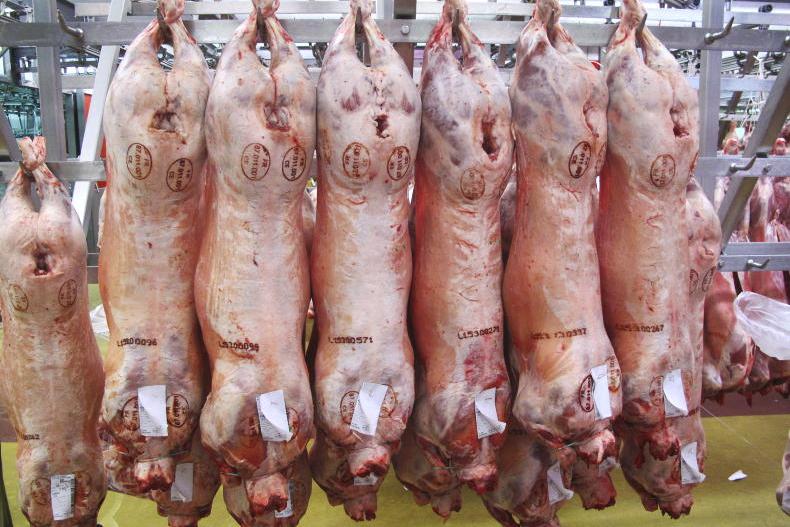The Northern Ireland (NI) Aberdeen Angus Quality Beef (AAQB) producer group held its 25th AGM in Cookstown this week.
It is quite an achievement for a producer group in the beef sector to not only be active but growing after this length of time.
Such groups frequently have a short lifespan, often linked to the involvement of an enthusiastic promoter.
The AAQB had that with Anne Morrison MBE, who built the group from an idea into a three-way partnership that has stood the test of time before passing the torch on to Charlotte Moore and Eamon Kelly, current managers of the group under chair Hugh McCollum and board of directors.
Strength
The great strength of this initiative has been the active commitment of the processing and retail partner. The integrated nature of the poultry industry in Northern Ireland is often cited as being key to its development and, in some respects, the AAQB project has elements of integration.
The Foyle Food Group (FFG), the processing partner, manages the trading relationship with Tesco, the retail partner, but goes a step further and has acquired the top-performing bulls which showed a significant improvement in performance compared with standard or even high-performing bulls.
Farmer members get exclusive access to these best genetics for breeding and are provided free of charge to the scheme members.
Transferrable model
While this group is Aberdeen Angus (AA) centred, the principles are transferrable elsewhere.
Very often, producer groups come together looking for a magic answer on how to get more money for selling the product.
AA does command a premium in the market place and the group involved, but the skill in adding extra value is finding ways to efficiently produce a consistent product.
The reality is that beef is already a premium product in the meat category and the ability to drive more money into the end price is limited, particularly at a time when consumers are under financial pressure.
A well-working supply partnership is above all a forum for an exchange of knowledge and sharing of technology.
With pressure to reduce the carbon footprint of beef only going to increase in the years ahead, every piece of technology available has to be fully utilised.
Nowhere is this more applicable than in the selection of breeding genetics where the difference between what would be considered good and the truly elite is considerable.
Of course, well informed and innovative farmers can access this themselves, but a group environment can speed up the process in the same way that joining a gym is usually more productive than training alone. It means that research is shared and there is peer pressure to adopt the best techniques.
Not magic
Being part of a well-performing group gives members the tools to operate their business better - no more, no less. It doesn’t make a poorly performing farm a good performer without the farmer doing what is necessary to make improvements, but it does provide the path of travel to do so.
Of course it doesn’t suit everyone, but it is an option for driving efficiency and performance on farm irrespective of what breed of livestock that are being fed.
Improving genetics isn’t a silver bullet for farmers, but it is the means to increase productivity and reduce the carbon footprint of output per kilo.
The NI AAQB scheme is an of example how it can work through a well-run group, but there is no secret mystery.
Factories can and should invest in their farmer suppliers to achieve the optimum level of output from their farm business and tackle the low profitability problem of cattle rearing. That would benefit farmers and secure raw material supply for factories into the future.
Read more
Irish Aberdeen Angus Association join forces once again with Angus Beef Ireland
Momentum builds in organic sector
The Northern Ireland (NI) Aberdeen Angus Quality Beef (AAQB) producer group held its 25th AGM in Cookstown this week.
It is quite an achievement for a producer group in the beef sector to not only be active but growing after this length of time.
Such groups frequently have a short lifespan, often linked to the involvement of an enthusiastic promoter.
The AAQB had that with Anne Morrison MBE, who built the group from an idea into a three-way partnership that has stood the test of time before passing the torch on to Charlotte Moore and Eamon Kelly, current managers of the group under chair Hugh McCollum and board of directors.
Strength
The great strength of this initiative has been the active commitment of the processing and retail partner. The integrated nature of the poultry industry in Northern Ireland is often cited as being key to its development and, in some respects, the AAQB project has elements of integration.
The Foyle Food Group (FFG), the processing partner, manages the trading relationship with Tesco, the retail partner, but goes a step further and has acquired the top-performing bulls which showed a significant improvement in performance compared with standard or even high-performing bulls.
Farmer members get exclusive access to these best genetics for breeding and are provided free of charge to the scheme members.
Transferrable model
While this group is Aberdeen Angus (AA) centred, the principles are transferrable elsewhere.
Very often, producer groups come together looking for a magic answer on how to get more money for selling the product.
AA does command a premium in the market place and the group involved, but the skill in adding extra value is finding ways to efficiently produce a consistent product.
The reality is that beef is already a premium product in the meat category and the ability to drive more money into the end price is limited, particularly at a time when consumers are under financial pressure.
A well-working supply partnership is above all a forum for an exchange of knowledge and sharing of technology.
With pressure to reduce the carbon footprint of beef only going to increase in the years ahead, every piece of technology available has to be fully utilised.
Nowhere is this more applicable than in the selection of breeding genetics where the difference between what would be considered good and the truly elite is considerable.
Of course, well informed and innovative farmers can access this themselves, but a group environment can speed up the process in the same way that joining a gym is usually more productive than training alone. It means that research is shared and there is peer pressure to adopt the best techniques.
Not magic
Being part of a well-performing group gives members the tools to operate their business better - no more, no less. It doesn’t make a poorly performing farm a good performer without the farmer doing what is necessary to make improvements, but it does provide the path of travel to do so.
Of course it doesn’t suit everyone, but it is an option for driving efficiency and performance on farm irrespective of what breed of livestock that are being fed.
Improving genetics isn’t a silver bullet for farmers, but it is the means to increase productivity and reduce the carbon footprint of output per kilo.
The NI AAQB scheme is an of example how it can work through a well-run group, but there is no secret mystery.
Factories can and should invest in their farmer suppliers to achieve the optimum level of output from their farm business and tackle the low profitability problem of cattle rearing. That would benefit farmers and secure raw material supply for factories into the future.
Read more
Irish Aberdeen Angus Association join forces once again with Angus Beef Ireland
Momentum builds in organic sector











SHARING OPTIONS